
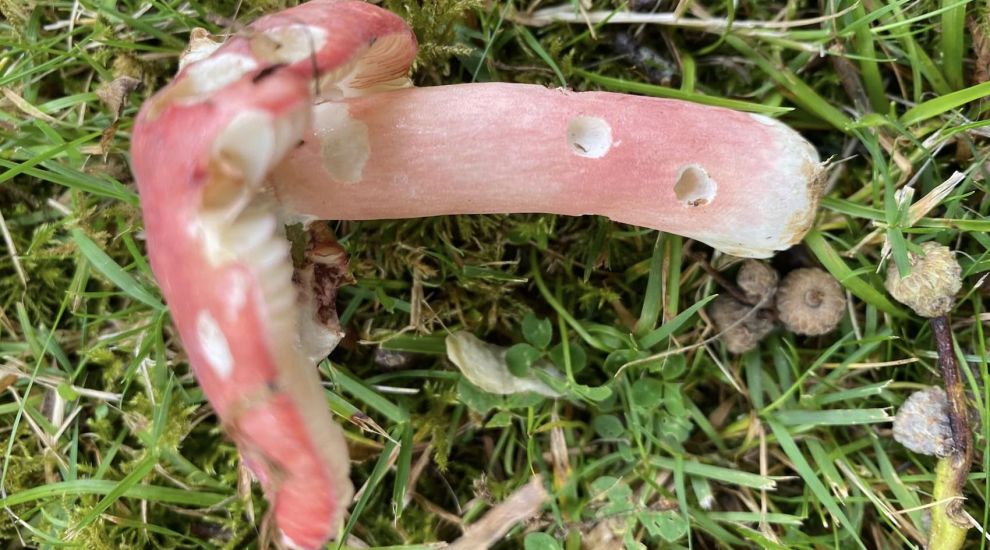

A local fungi enthusiast's "Christmas came early" after she discovered a rare mushroom in Trinity which is thought to be the first record of the species in the British Isles.
Wild mushroom lover Charlotte Shenkin spotted the Russula stenocystidiata – a species of fungi which is so rare it doesn't have a common name – whilst driving back from Jersey Zoo with her toddler in tow.
"I spotted an eye-catching pink mushroom growing on a grass verge," she said.
"After a sharp detour, I found myself looking at something that definitely felt unusual and possibly rare!"
Charlotte explained: "I knew it was one of a group of mushrooms in the genus 'Russula' commonly known as Brittlegills, but red/pink Russulas are notoriously tricky to identify since there are many similar species."
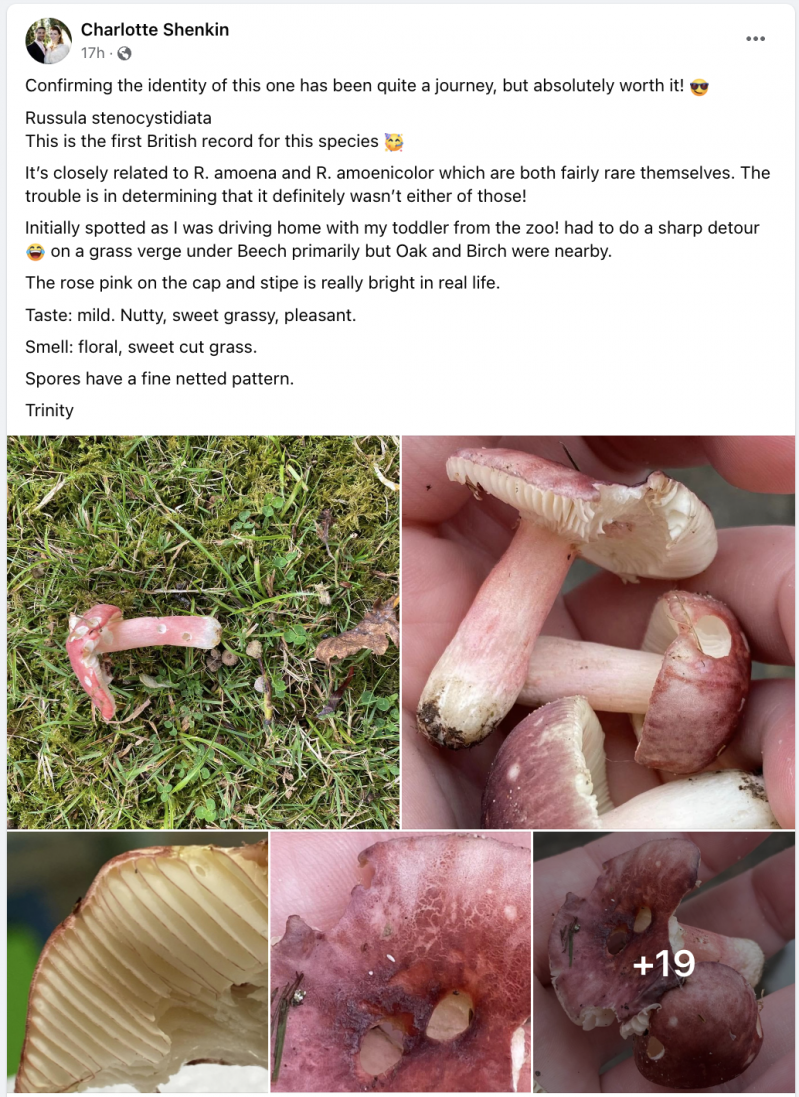
Pictured: Charlotte shared her rare find with the local fungi community on the 'Jersey (CI) Wild Mushroom Hunting!' group.
With a background in science and conservation, Charlotte has always been passionate about nature but she only become interested in mycology – the study of fungi – last October.
She explained: "I’m Autistic and ADHD so I have a really strong pattern recognition ability, I can absorb scientific knowledge easily and I can focus intensely on my special interests.
"I’m passionate about mushrooms because they are both fascinating and absolutely everywhere once you start looking!
"It’s like a treasure hunt but the treasures are everywhere all year round, you just have to look and suddenly you find something exciting and new to learn about."
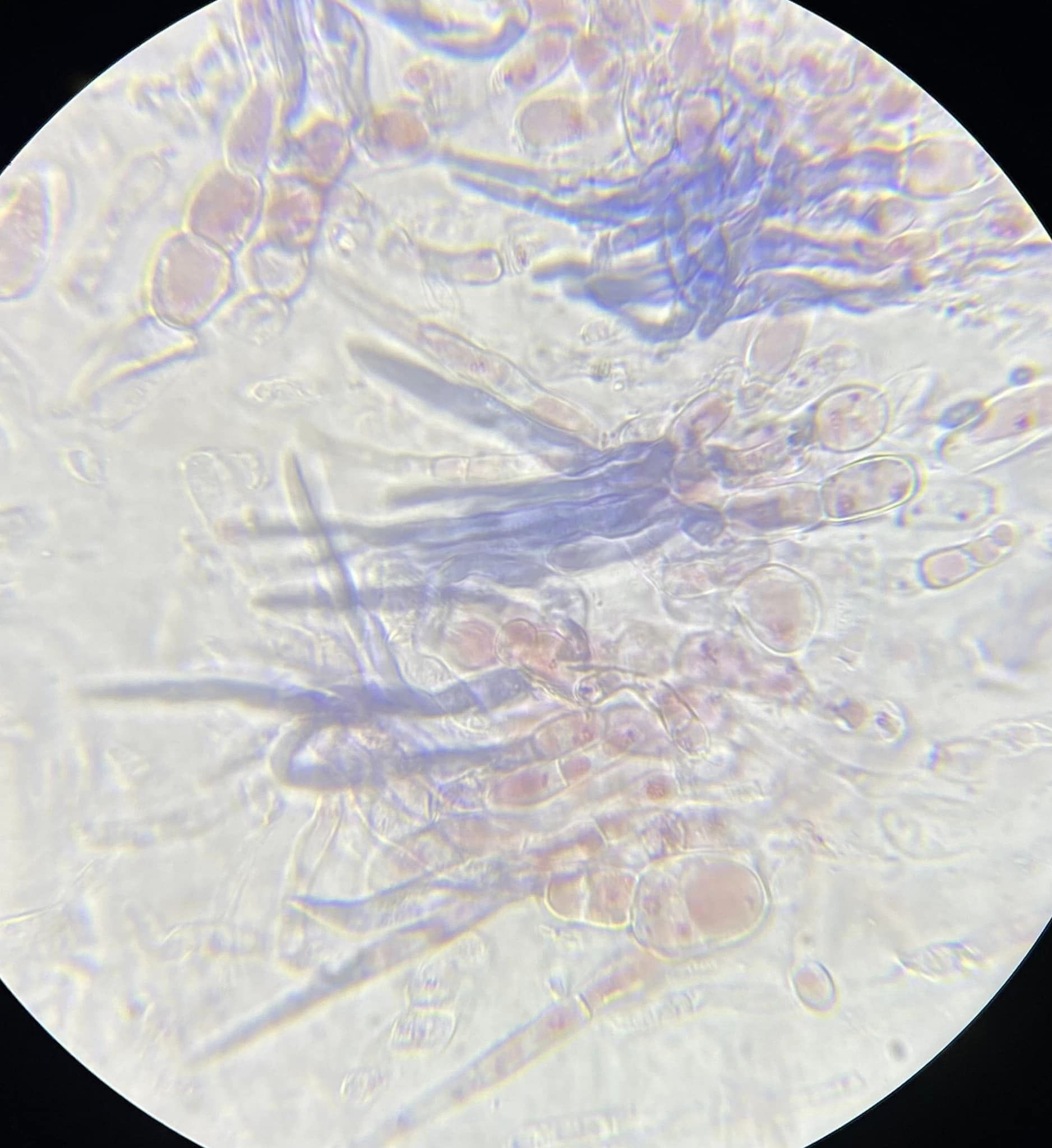
Pictured: Charlotte has a lot of experience using microscopes and chemical testing which she said "definitely helped" whilst trying to identify the fungi.
Having previously worked as a Zookeeper, Lab Technician, Aquarist and a Science Teacher, Charlotte knows her way around a microscope, however the process to identify a rare mushroom can be complex.
Charlotte said: "To identify Russulas you have to do quite a few standard tests, things like; what they smell like, do they bruise a different colour, what colour are the spores, using a microscope to look at the shape of the spores, etc.
"After I did all of those tests I posted about what I’d found on a specialist Facebook group. The British expert Geoffrey Kibby (whose books I had been reading!) was excited thinking it was a rare mushroom he’d never seen.
"I had a lot of help from Dutch and Italian mycologists who knew I’d found something very rare straight away. In the end I had to use special chemicals to stain and look at special cells in the gills and cap of the mushroom, once I had found them I had to measure them to determine which species I was looking at."
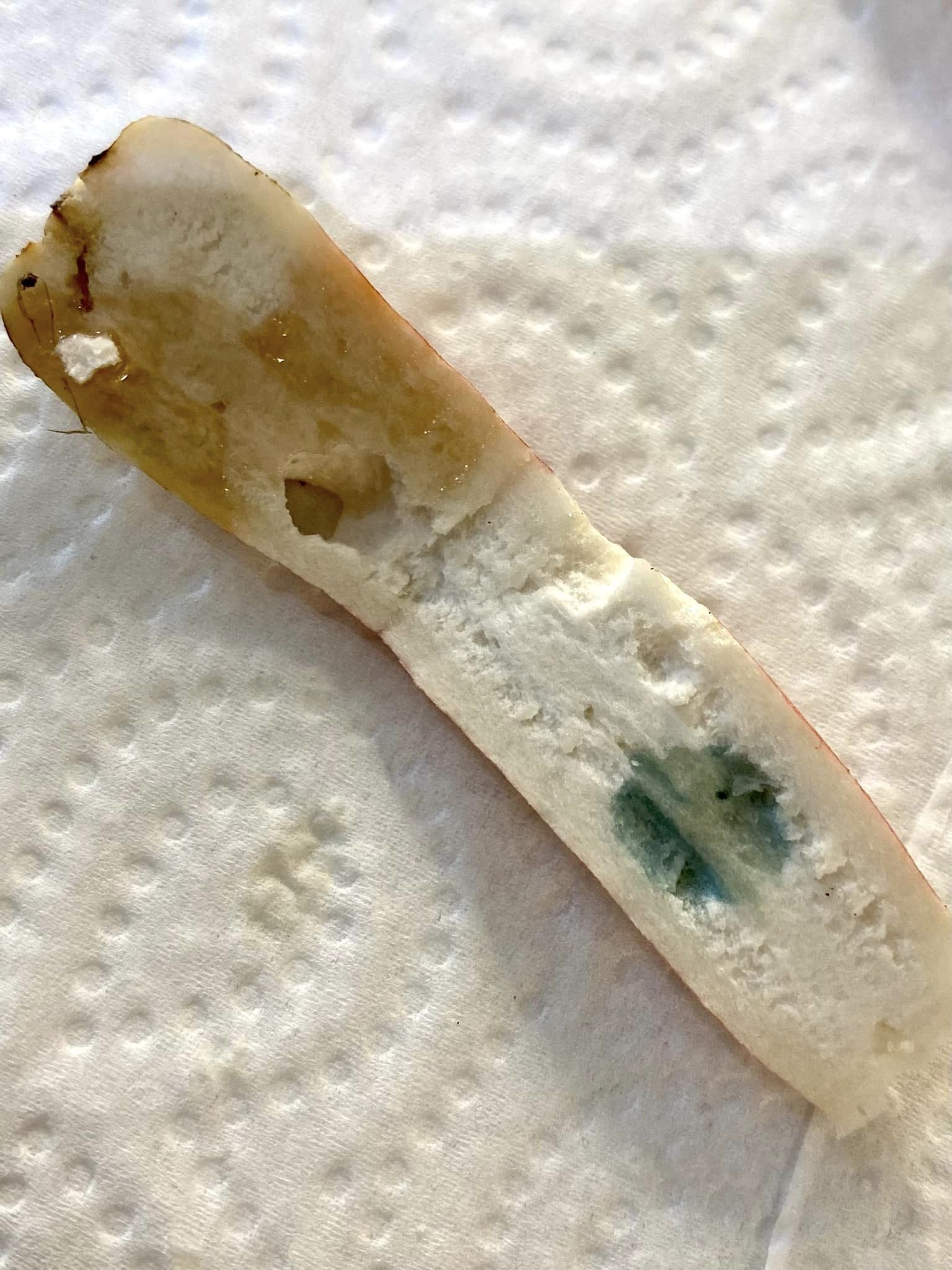
Pictured: The identification process involved using special chemicals to stain and look at the mushroom.
By a "complex process of elimination", Charlotte eventually ruled out all of the other possibilities and confirmed that her discovery was in fact the rare Russula stenocystidiata.
British expert Geoffrey Kibby, who is a Research Associate at Kew Gardens, confirmed there are no previous records of this species in the British Isles.
Charlotte described her excitement: "I’ve been on a high since I first found it and as I got closer and closer to confirming it I was so excited about getting to record a new species here.
"If you’re a science geek then this is like Christmas came early!"
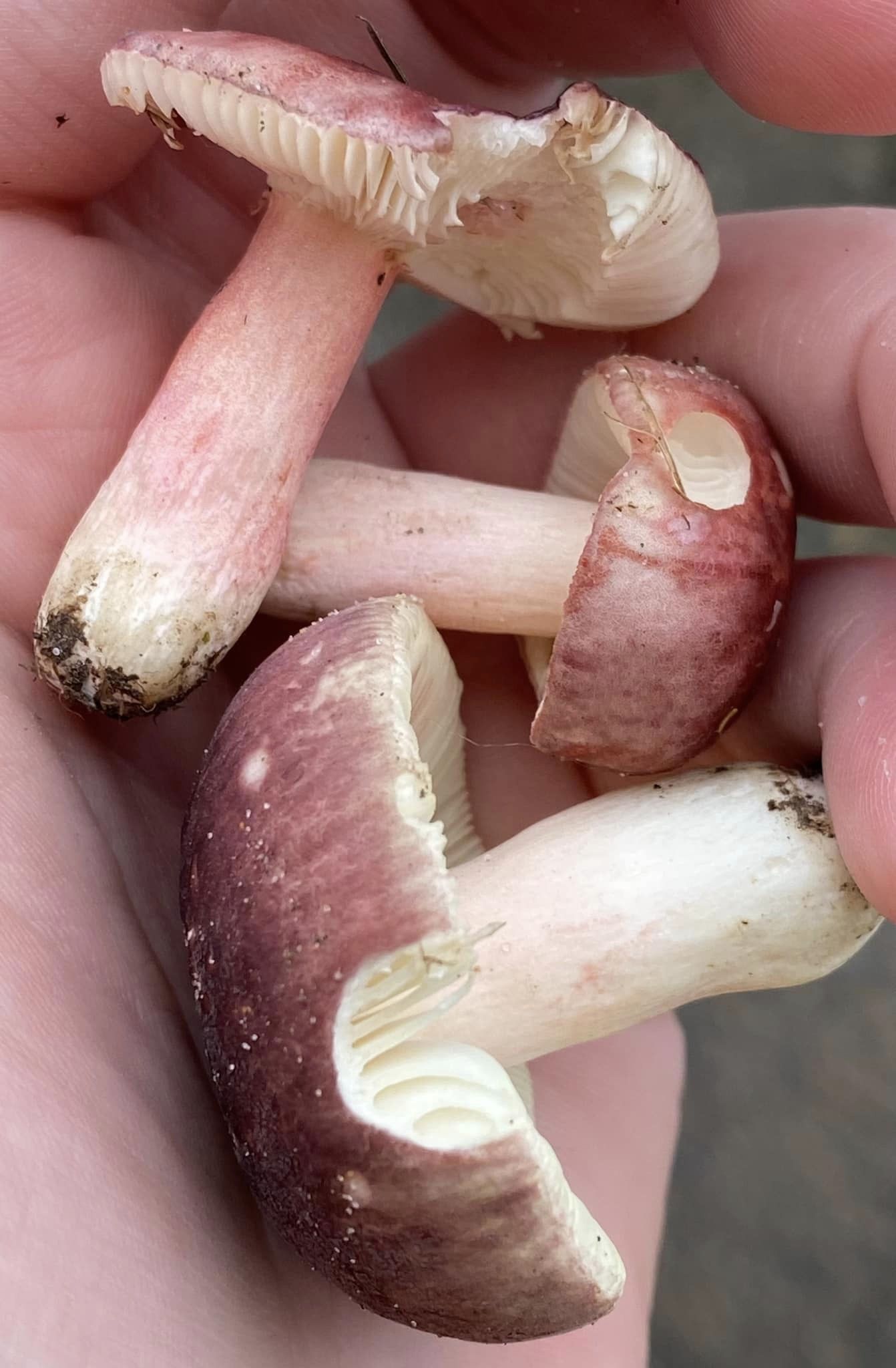
Pictured: "If you’re a science geek then this is like Christmas came early!"
The next step is for Charlotte to send the dried samples and all of her data to the Kew Gardens Fungarium manager, who will catalogue the record and possibly use the Charlotte's samples to determine the DNA fingerprint of this species for future use.
Comments
Comments on this story express the views of the commentator only, not Bailiwick Publishing. We are unable to guarantee the accuracy of any of those comments.